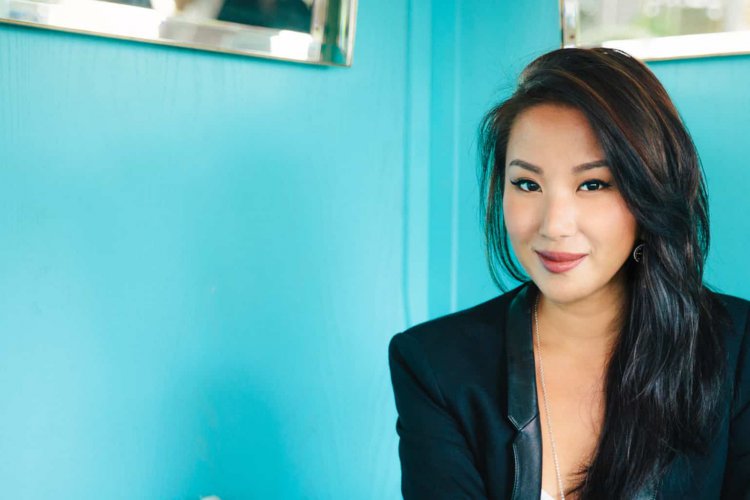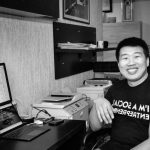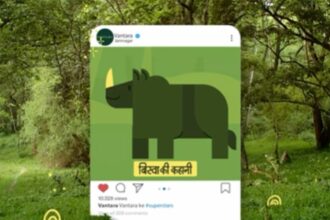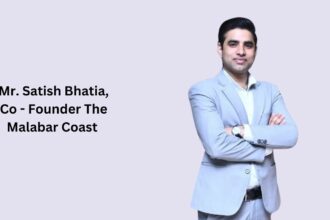We know you as a Founder and CEO. Walk us a little bit on your background.
I don’t come from fame, wealth, or even education. I used to be ashamed of my humble beginnings, living in a HDB and remembering mum counting out 60 cents for recess money every morning at 6am before I headed to my local school. I’m so proud of that now. My dad never went to university; he was an air-traffic controller and the shift work meant I didn’t see him much. But when I did, he read to me and was anal about my diction and language prowess. My mum is a Kampung girl, not educated and a homemaker. I’d come home and be left to my own devices. We didn’t have much, so toys were out of the question. She was laissez-faire, so, instead of tuition classes after school like my peers, I had long spans of time just reading and writing to self-entertain, reading 200 books a year for over a decade and practising critical inquiry. Yes, fun hobbies.
On hindsight, I really struck the lottery with my upbringing. I had the extreme privilege of developing my own mind. This helped me with so much over the years; conquering severe clinical depression (only took 8 years), learning to code as a kid (not cool at the time), starting companies before turning 21 (insane and heavily critiqued back then), the list goes on. It’s not that I wasn’t affected by societal pressure, it just didn’t dictate what I did.
If it’s even possible to condense a life, I’d say I’m someone who steps back and looks at systemic issues and trends – at what causes people pain – and I try to see what I can do about it in a scalable way, with the skills I have or believe I can acquire. And then the mission starts. The Founder and CEO thing is the least exciting part. Creating solutions and impacting real people is what matters.
You started Wander some years ago. Tell us about that, Krystal.
I’ve written about that a lot. Wander was a multi-chat universe for strangers to meet on digital space and chat. I wanted this behaviour to replace the passive scrolling, envying, FOMO or like-bait behaviour causing widespread psychological issues.
Basically, I believed there were smart ways to build in human design on a digital platform to allow for authentic social connection, while still being valuable to companies and profiting from them. I wasn’t able to raise enough funds to sustain the company or reach profitability before I was able to explore the more intricate methods around applying natural language processing and machine learning to threads and re-engineering the psychological reward loop.
I still believe in the idea, but I’ve accepted that I’m not the person to make it come to life. For now.
You have always been an entrepreneur. What drives and motivates you in your entrepreneurial journey?
I just want to create solutions that help people to have better days. The tools we have these days are incredibly powerful. But a lot isn’t designed with the human in mind. So it’s exhilarating to be able to try. And to keep trying. My abilities and potential are best maximised in this large, unpadded room.
The society that we live in now is no longer obsessive about having traditional careers like doctor, scientist or engineer which was deemed as a benchmark before, of a successful person. These days, we hear so many stories of millennials and even Gen-Z achieving success doing their own thing – entrepreneurship especially in the tech industry. What do you think shifted this perception?
I think people aren’t made to all be exactly alike. When someone breaks free from the mould and carves their own path, successfully and without perceived backlash, I think it reminds everyone of their inner child’s dreams and makes them feel, ‘that could be me one day’. It gives them permission to dream again. So, of course, you’d want to support and elevate it.
Tech is democratising – it doesn’t require 7 years of expensive education. The difference is that it became way more accessible in the last 3 decades, both in cost and learning curve. I think the rational reason is a culmination of all these trends shifting perception from the entrepreneur is a rare, elusive and enigmatic success to one where success is around the corner for anyone who dares to try.
My preferred reason is that people are starting to find their own voices and tapping into the moral courage within, breaking the shackles of history and external control.

I am very excited to hear about Tickle from you, Krystal. Please tell us all we need to know about this platform.
Tickle is a lifestyle platform selling authentic experiences hosted by everyday people. It empowers these experience hosts to share what they love and earn a living. And it lets anyone go out and into a more intimate, social environment and taking away new knowledge, skills and stories. A home cook could share family recipes. An ex-convict could share his experience in prison. A veteran could share history. It’s very much like Airbnb Experiences, but it’s not a one-time indulgence for travellers; ideally, it grows into a lifestyle option made by locals, for locals.
We started in Singapore to test audience response, interests and motivations. We learnt that hosts here are less willing to commit time, and guests here prefer accredited paid experiences (like those by a museum or known community), on top of being a comparatively much smaller market. Ethnographically, our platform is much better suited to larger developing markets, where interests and skills have been less gentrified, there is a higher motivation to go outside of traditional modes of employment for income, and there is a higher expressed interest in community-based trading of knowledge, skills and stories. That’s why we are now in Greater Jakarta and building up toward a larger presence there. You can check us out at https://trytickle.com.
What have your marketing strategies been for Tickle?
Tickle aims to get the digital native offline into an intimate, community-driven social environment. We started using paid digital channels and community thought leaders to open applications for hosts and guests in our pre-launch phase. This was very predictable, but we sensed there was more to it, so we went on the ground to talk to interesting figures and learnt of the digital underground.
Interestingly, there are numerous disparate groups that exist through twitter threads, email chains and other less discoverable corners online. You have to know someone to know about it. We’re exposing Tickle to these passionate communities as interests are aligned; they are so focused on expanding the human experience and less about the commercialisation and standardisation of their passion. Tickle lets them reach the audience they want and keep their offerings pure.
The initial effort is very manual; we want to curate these experiences in order to set a great example for all other aspiring micro-entrepreneurs out there. And we want to keep the local flavour alive.
In branding oneself – what, in your opinion, is a vital factor?
I think your sense of purpose and driving force must come through. People feel that and can get behind that. I’d kept my voice as a girl doing unpopular things, and still keep it now as an empowered woman – and that has made all the difference. Whatever branding comes through from this would be something I’m pretty okay with.
You were named as one of 50 Asia’s Women Leaders, the winner of Social Media Influencer, selected as a Global Key Opinion Leader, TEDx speaker – the sky and beyond seems to be the limit for you. What’s next, Krystal?
While growing Tickle in Indonesia with my co-founders and partners, I’ve done more research in different modalities of psychological healing (what’s been a 20-year study, very intrinsic to my work).
As a result, I’ve finally put all these pieces of wisdom, ancient and new, scientific and energetic, eastern and western, together to form a simple framework I call “Radical Thriving”. The thesis is that current frameworks don’t allow people to thrive as the individuals they are in the present high-anxiety environment. “Radical Thriving” is a simple roadmap that helps guide people to go from just surviving to thriving. I help C-suite leaders harmonise a deep sense of peace while keeping their ambitions high, and I’m now developing material that will help corporations and everyday people adopt this framework in a meaningful and time-sustained way, for a life of continuous flow, joy and purpose. I suspect this will be a life-long piece of work.
Another current thing: Being a woman in this industry has taught me a lot, but beyond that, I believe I can give many other women the gift of tools and skills that can help them grow courageously into their own unique and brilliant potential. Together with Leanne Robers, the incredible founder of She Loves Tech, we deliver corporate workshops that provide women in corporations internal and external structures to maximise their potential.
Yet another thing: A sustainability side project I started (together with my lover) is the First Step Project. We’ve put together 18 waste-reducing items in a pack – easy swaps that don’t inconvenience but help 100 people take their first green step to collectively save the ocean from over 176,000 pieces of single-use waste a year. It’s only 59 USD for all 18 items, and 30% of proceeds are donated to Waste Free Oceans, to help clean up the plastic that is already clogging our water. It can be found at firstgreenpack.com.
That’s all for today.
For those who wish to get in touch with you, what is the best way?
Just write to me using the form on krystalchoo.com for leadership coaching, keynote and panel speaking engagements, diversity and Inclusion workshops for your female workforce, or Increasing workforce engagement by helping your employees improve their physical, psychological and social health, leading to greater success in their professional and personal lives.
















